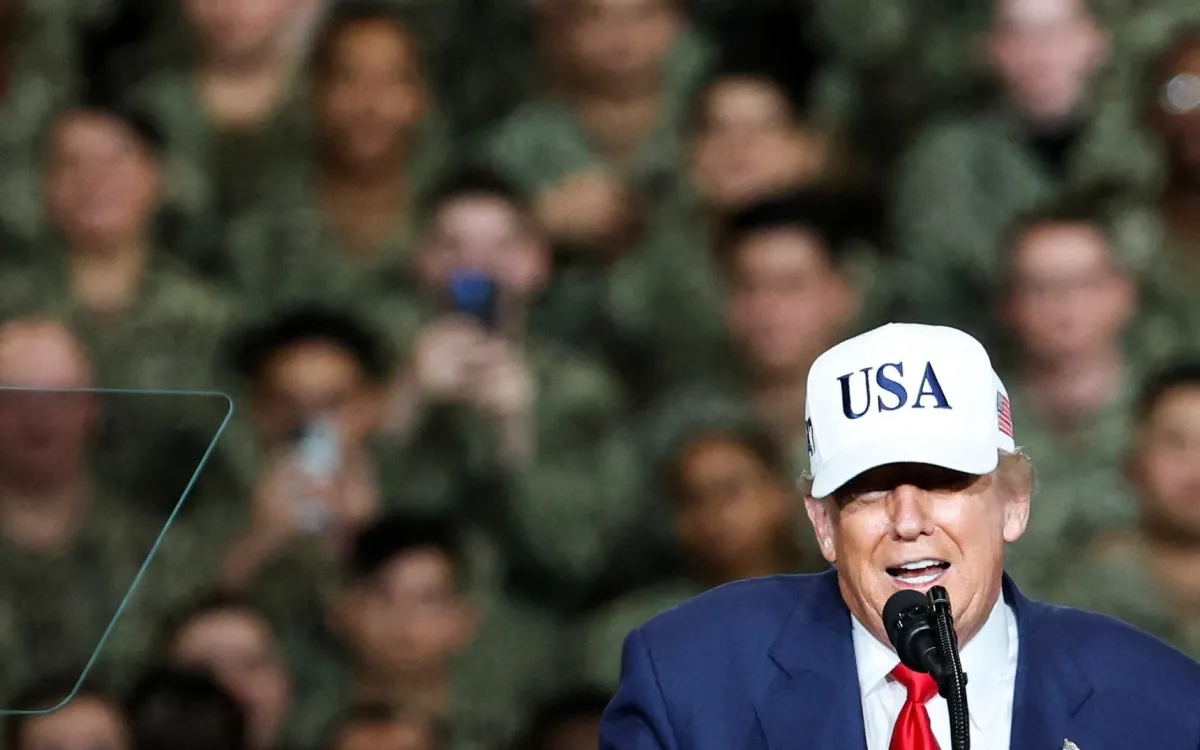
On Monday, United States President Donald Trump stirred the political pot by refusing to dismiss the notion of a third presidential term, despite the clear limitations imposed by the US Constitution. Currently serving his second term, Trump, now 79, expressed his enthusiasm while speaking to reporters aboard Air Force One during his week-long tour of Asia. “I would love to do it,” he stated, highlighting that he is experiencing his “best numbers ever.”
Trump's recent comments mark one of the most explicit indications yet regarding his interest in a potential run for the 2028 presidential election. At this time, he would be over 82 years old. Notably, Trump has already launched merchandise featuring the slogan “Trump 2028,” including a $50 baseball cap. During a tour of the White House in August, he pointed out a hat promoting “four more years” to European leaders Volodymyr Zelenskyy and Emmanuel Macron.
After departing from the summit of the Association of Southeast Asian Nations (ASEAN) in Malaysia, reporters quizzed Trump about his intentions for a 2028 presidential bid. “I would love to do it,” he reiterated, adding, “Am I not ruling it out? You’ll have to tell me.” Trump emphasized that he has a strong team compared to the Democratic Party and mentioned his impressive poll numbers.
According to the US Constitution, specifically the 22nd Amendment, no individual can be elected to the presidency more than twice. This amendment, ratified in 1951 as a response to Franklin D. Roosevelt's four-term presidency, establishes a clear legal barrier against a third term. Experts in constitutional law assert that any legal challenge by Trump would likely be unsuccessful. Wayne Unger, a law professor at Quinnipiac University, stated, “I would predict the Supreme Court to say nope, it’s clear, two terms of four years each, Donald Trump, you cannot run for a third.”
Amending the 22nd Amendment would be a formidable task. It would require a two-thirds majority approval by both houses of Congress and ratification by three-quarters of the states (38 out of 50). Currently, the Republican Party holds a slim majority in Congress and controls 28 state legislatures, making such an amendment highly unlikely.
Some of Trump's supporters have floated the idea of him running for vice president instead, with the hope that the presidential candidate would resign shortly after taking office, thereby allowing Trump to assume the presidency. This scenario, reminiscent of the political scheming depicted in the Netflix series House of Cards, has been dismissed by Trump himself. He stated, “I think it’s too cute. I think the people wouldn’t like that. It’s too cute. It’s not – it wouldn’t be right.” However, he also noted that such a strategy would not be legally viable, as the 12th Amendment prevents anyone who is constitutionally ineligible to the presidency from serving as vice president.
Trump's musings about a potential third term date back to a private fundraiser in 2018, where he praised Xi Jinping for becoming “president for life.” Since then, he has made various comments hinting at a desire for extended leadership, including at a Turning Point USA summit where the crowd chanted “four more years.” In 2020, Trump suggested going for “12 more years” to provoke his opponents.
Despite Trump's ambitious talk, his approval ratings have seen a decline since he took office. Recent polls indicate that only 40% of voters approve of his presidency, with a disapproval rating of 56%. A survey from Langer Research Associates reveals that 62% of Americans believe Trump is serious about running again, although 80% oppose the idea of him seeking a third term.
As the political landscape evolves, the question remains: How serious is Trump about a 2028 bid, and can he navigate the constitutional hurdles that stand in his way?